The former hockey pro sat down with IN to talk about his mission to make the ice (and sports in general) a safe, welcoming and inclusive place for queer athletes…
Story and interview by Christopher Turner
Photos by Miss Moço
It’s been almost six years since Brock McGillis appeared on the cover of IN Magazine, and in that time a lot has changed…but a lot has also stayed the same, including the former hockey pro’s mission to make sports a better place for queer athletes.
The former Ontario Hockey League and professional hockey player made headlines around the country in November 2016 when he wrote a first-person essay for Yahoo Sports Canada and became the first professional hockey player to publicly reveal that he is gay. It was a life-changing moment for the Sudbury native, and for the sport. In the years that followed, he began travelling across Canada speaking about inclusivity to school groups and a variety of organizations. That initial advocacy work took on added meaning with the NHL’s very public debate on Pride jerseys and Pride Tape.
That debate opened up in June 2023, when the NHL announced that players would no longer be allowed to wear “specialty” jerseys that supported causes like Pride or military appreciation during warm-ups, practices or games. The league further clarified that on-ice player uniforms and gear worn in warm-ups, official team practices and games could not be altered to reflect “specialty” theme nights. That included the use of Pride Tape, a rainbow-coloured stick tape that had been used in support of the 2SLGBTQI+ community for several seasons. The league claimed that the ban on Pride Tape was to prevent teams and players from using it as an “end-around” to violate the new uniform policy.
The Pride Tape ban made international news and compelled NHL players, including reigning MVP Connor McDavid of the Edmonton Oilers, to openly question the policy. “I’ve expressed disappointment in not being able to wear the various jerseys or the tapes…whether that’s Pride Tape or pink tape,” McDavid said. “Is it something that I’d like to see back into place one day? Certainly.”
The NHL decided to rescind their ban on Pride Tape in October 2023 after Arizona Coyotes defenceman Travis Dermott publicly defied the rule and used the tape during a game in protest.
“I’m a big believer in freedom of choice. While I might have been disappointed, I didn’t criticize any players for not wearing a [Pride] jersey, because that’s their right to choose. I think it should be a player’s right to use the tape they want to, that’s been sanctioned by the NHL for years. For me, this is a big win for freedom of choice,” McGillis said at the time. “That said, we need to get back to a point where we’re focused on informed decision making and recognizing impact.”
The ban may have been reversed, but the controversy both on and off the ice sent a clear message, especially to queer hockey fans.
Dismantling the roots of anti-2SLGBTQI+ behaviour that is so prevalent in hockey has been on McGillis’s mind since he publicly came out. He had, of course, been speaking publicly about making changes to hockey culture for the last few years, but felt it was time to take things to the next level with a cross-country ‘Culture Shift Tour.’ Plans were already underway to embark on the tour in November 2023 – just a month after the NHL reversed its decision – but the controversy re-energized him, and reinforced the need for his clear objective: to speak to 100 high school-aged minor hockey teams across the country in 100 days to ensure the game of hockey takes important strides to be a welcoming space.

When he was an active player, McGillis never felt comfortable enough to come out because of the onslaught of homophobic language he heard in the locker room and on the ice. It’s something that still happens today. In fact, a 2022 Hockey Canada study concluded that the type of language for which players were most commonly given penalties was homophobic in nature. By spending 100 days telling his story to minor hockey teams in every NHL market in Canada, McGillis began another journey to ensure that no current player has to endure a similar experience.
The tour was a success, but as McGillis told IN, his work is far from over. We sat down with the former hockey pro to talk more about the Culture Shift Tour and to find out why it’s important to create safe spaces for queer athletes. It was a wide-ranging conversation that covered everything from expanding the initiative to his own role models, combatting hate, celebrity crushes, and much, much more.
Why is it so important to create safe spaces for 2SLGBTQI+ athletes?
Because those spaces don’t exist for most queer people the way they do for many straight folks. Sports can be so wonderful and can be a distraction from our struggles or stresses – a healthy release. But, for many queer folks, sport amplifies our struggles, particularly in locker rooms.… The language, behaviours and attitudes reinforce our oppression. Imagine being closeted and entering a space daily to do something that gives you joy but all you hear is negative comments and hate about who you truly are. It beats you down.… It’s death by a thousand paper cuts.… It makes you feel less than, like you don’t belong. How can you keep the joy for the sport when everything surrounding it makes you feel like you’re bad or wrong for existing? Nobody deserves that. We all deserve spaces that are welcoming and inviting.
What is the one thing we can do to make hockey a more welcoming place for members of the 2SLGBTQI+ community?
I don’t think one thing in particular can evolve an insular culture that has decades and decades of rigid conformity built into it. But I think I can simplify it down to four things.
Humanize: Putting faces to issues makes them real. We need to share real stories of real people to open eyes and hearts.
Engage and educate: Meet people where they’re at, and teach them to think critically about the impact of what they do. I don’t think trying to force people to change works, but I do think when people are taught about the impact, they’ll be receptive to evolving.
Rally: Hockey people rally around issues – I’ve seen it my entire life – but we need to show them that inclusion is something that should be rallied around. Show them positive examples of people who create shifts and teach them how they too can become shift makers.
Break conformity: Normal doesn’t exist – we’re all a bunch of weirdos, and that’s a beautiful thing. I say this everywhere I go and I truly believe it. Yet hockey, like most cultures, tends to conform. We dress the same, talk the same, walk the same, yet it’s not who we truly are. The more we embrace our own uniqueness, the less likely we will be to judge it in others.
I’m sure those were all pretty important talking points from your recent Culture Shift Tour, which recently wrapped up. Are there any stories that have really stuck with you?
Gosh, there were so many wonderful uplifting stories, and a number of heartbreaking ones. I feel like this journey was a rollercoaster of emotions. I had coaches, managers and players come out to me. People share that they have been physically attacked for being queer. Those never leave you.
There were some cool ones, too. I had a session where there were a number of kids from Russia and neighbouring Eastern European countries who were living at this one academy to play hockey and they weren’t open to the session, but their team mandated it. I called up the captain early in the session not realizing that he was one of these players, and I went to shake his hand and he pulled away from me. I kept my hand out and looked him directly in the eye. Eventually he shook my hand. About midway through the session, I told a joke and one of them laughed, and things just snowballed from there. They began answering questions and engaging with me, and by the end of the session three Russian players were the first ones to come thank me and shake my hand. This gave me so much hope not only for hockey but for society.
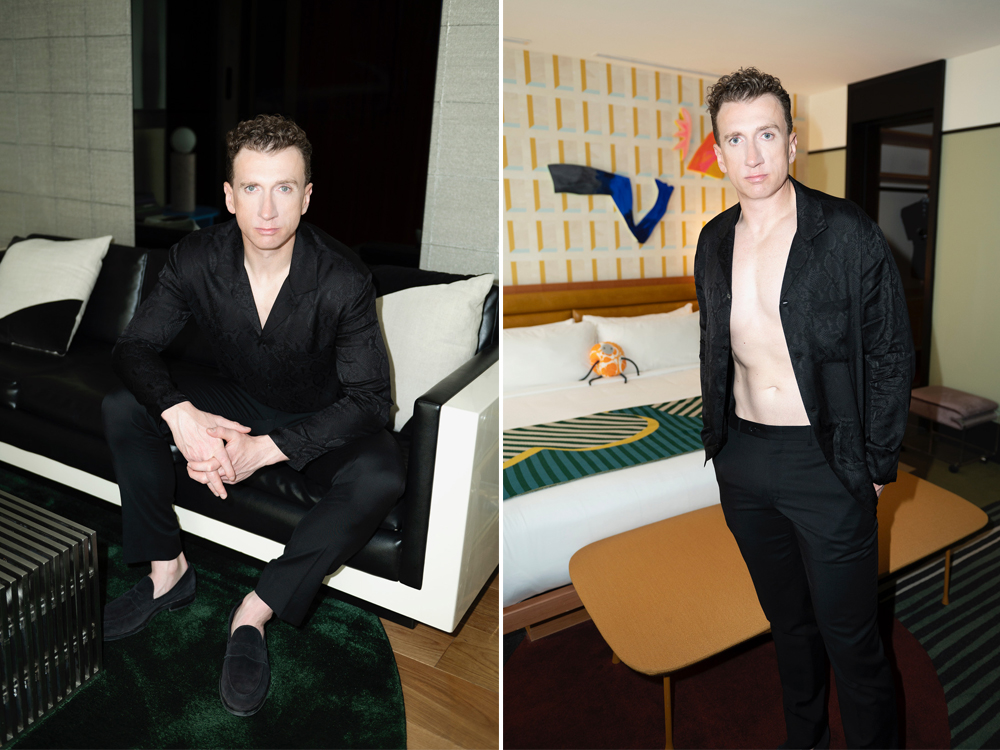
Do you have any plans to expand this initiative for the 2024–25 hockey season?
I want to do two tours each season: one across Canada and one across the US.
Since we are heading into Pride Month, what does Pride mean to you?
Pride is a fight for rights. I think along the way we’ve lost that a little. It’s great to celebrate how far we’ve come but members of our community, specifically trans folks, still need our support in the push for equality. We’ve seen bills passed in America to strip rights. We can’t be complacent. I wish that we all had to go through a queer history museum to enter a Pride festival. Learn about our past and what our queer ancestors went through to get us here.
When did you come out?
I came out in stages. I began dating men at 23 and hid it from everyone in my life. I came out to my family at 27 and then publicly at 33.
And what was that experience like for you?
I did it to hopefully help others but mostly to empower myself. The experience was surreal. I received over 10,000 messages the first day alone, and it snowballed. I started getting calls from media across Canada and then the world. Soon I was getting calls to speak at schools, events and corporations. It was all a shock and still is, but I’m so incredibly happy that I made the decision to come out publicly.
What’s the one piece of advice someone gave you that has really made a difference to you?
This is a tough one. I think the best advice is to be myself. Don’t try to be someone I’m not. My authenticity is my power. I’ve always been someone who cared what other people thought and I’ve had to train myself to stop, and I think it has allowed me to be more authentic and be myself rather than a version of me that other people want to see. I’ve taken this way of thinking into my work but also on social media and how I engage with people.
What is your advice to people who are looking to you as a role model?
Don’t do it!!!! Nah, I’m kidding. I think it depends on the individual. But hypothetically, if someone is struggling with their sexuality or gender identity, I tend to focus on looking inward. Too often we want acceptance, and I think acceptance is bullshit. We don’t need acceptance from others. It creates hierarchies but we’re all equal. The only person who can accept you is you. You have to look inward for that, not out. When you do accept yourself, you can learn to love yourself unconditionally. After that, you won’t care what anyone thinks of you. This isn’t an overnight process. It takes a long time, but if you can give yourself grace and continue to work at it, you’ll be significantly happier for it.
Who do you consider a role model?
Gosh, my initial thought is my parents, but that’s so cliché. To be honest, I admire people who, through whatever circumstance, are given a platform and then run with it and achieve things. Bonus if they make the world a better place in the process. Too many people are given opportunities that they squander. There are not enough people taking that opportunity and elevating from it.
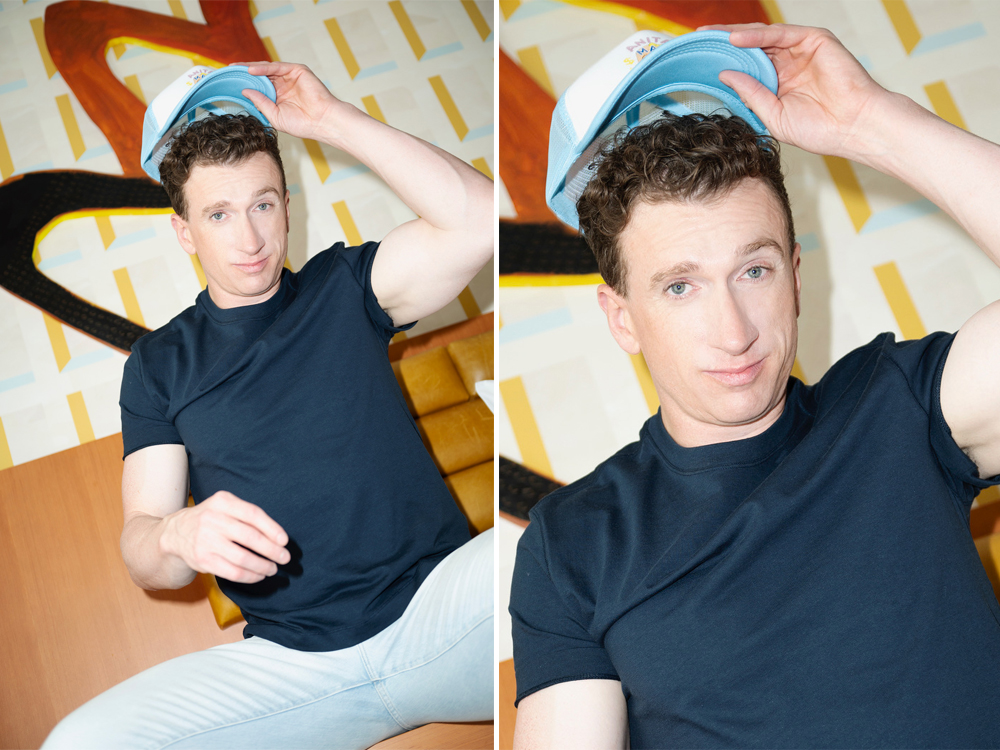
Are you single right now?
I’m not, I’ve been in a relationship for seven years. We’ve lived together for five years now. I guess I’m technically common-law married. WILD.
Who is your celebrity crush?
I don’t think you have enough space in your magazine for me to answer this question in full. I’ll give you a few names, though, off the top of my head: Tom Holland, Nicholas Galitzine, Mark Consuelos, Matt Bomer, James Marsden and Jay Ellis. If you have any of their contact info, please pass it along to me – or if you plan to interview any of them, feel free to give them my info!
Outside of hockey, what sports do you play?
I play a lot of baseball. I just joined a provincial team that actually won the Canadian championship last year. I also play in the gay baseball league in Toronto and a couple of other leagues in the city.
What do you want people to know about you that they might not already know?
I’m a man-child and goofball. I think people have this impression of me that I’m super serious because of the type of work I do. Couldn’t be further from the truth. Basically, I love to have fun and laugh and enjoy life.
Let’s switch gears. What’s your favourite TV show, movie and song?
My current favourite TV show is Hacks, though Season 2 of Feud was really good.… I’m also obsessed with Housewives and Drag Race. My favourite movie is either The Devil Wears Prada or Goodfellas. As for song… “Money” by Cardi B or “Boss Bitch” by Doja Cat. I want to be money in everything I do and I want to move like a boss bitch!
What’s next?
Oh, goodness. My main focus is Year 2 of the Culture Shift Tour. Besides that, I’m working on some TV and film projects. Hopefully I’ll get those off the ground. I also have some concepts for podcasts that I’d like to explore.
I’ve found a creativity in me that I was never able to explore in hockey, and it’s been so exciting. I feel like now is my time to thrive. I’ve been manifesting it and I’m watching it all come to fruition, and I’m having fun working my butt off to make it happen
Anything else that we haven’t covered that you’d like to share with us?
I love IN Magazine! I love queer content and queer art. Thank you for letting me share a bit of myself with the world.
We love you too.
CHRISTOPHER TURNER is the editor of IN Magazine. He is a Toronto-based writer, editor and lifelong fashionisto with a passion for pop culture and sneakers. Follow him on social media at @Turnstylin.

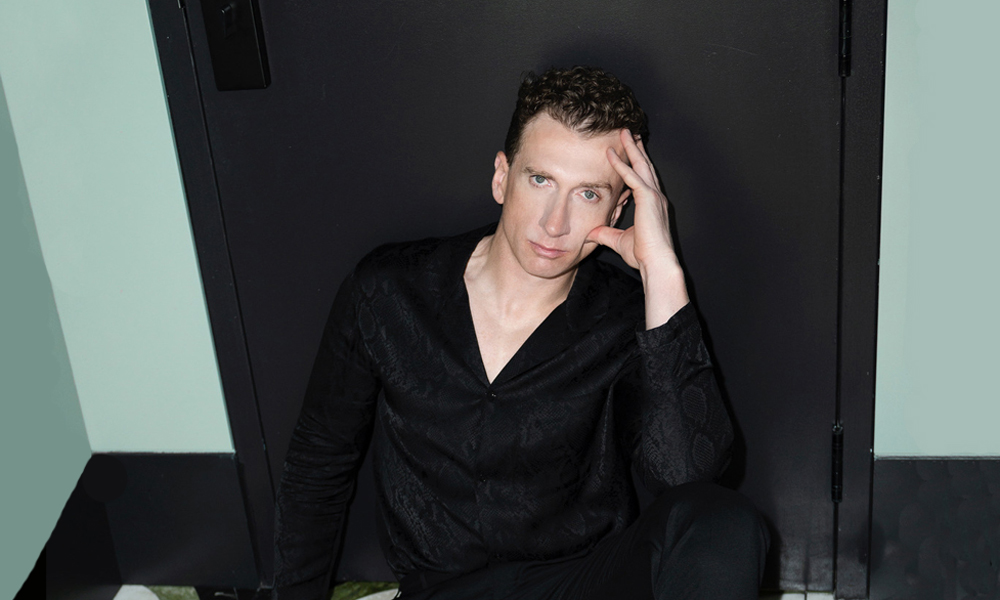

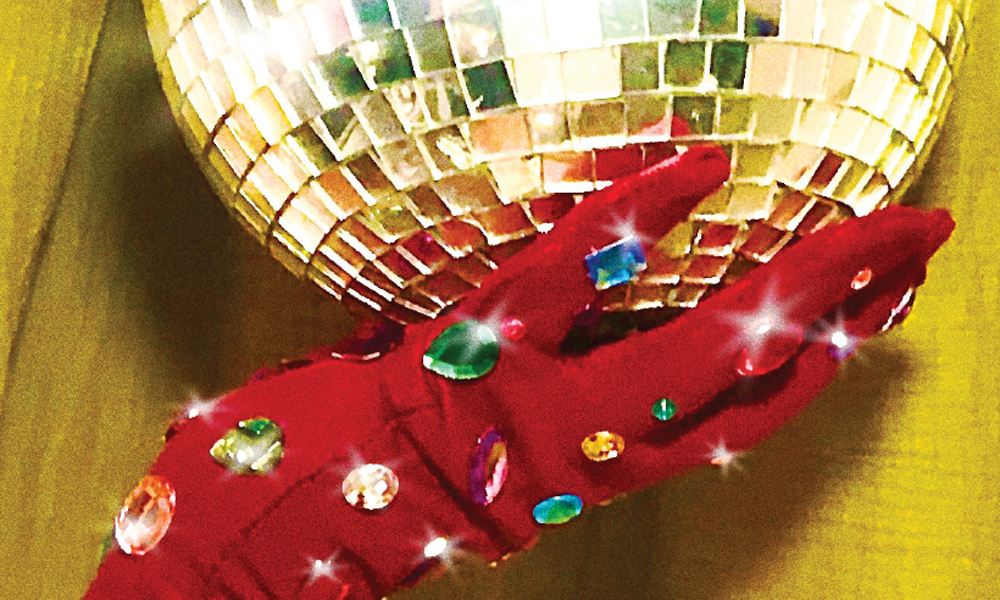
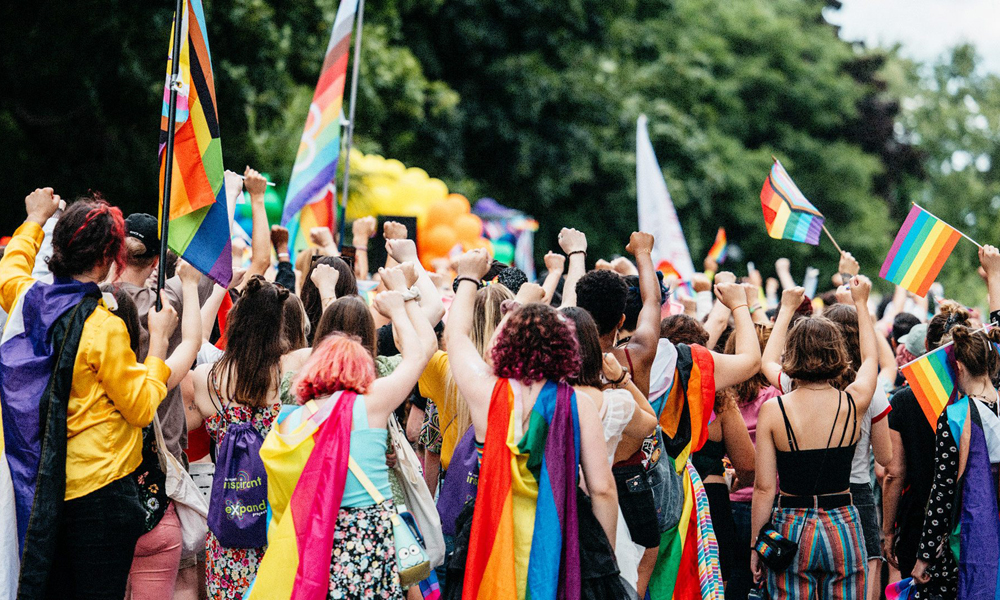
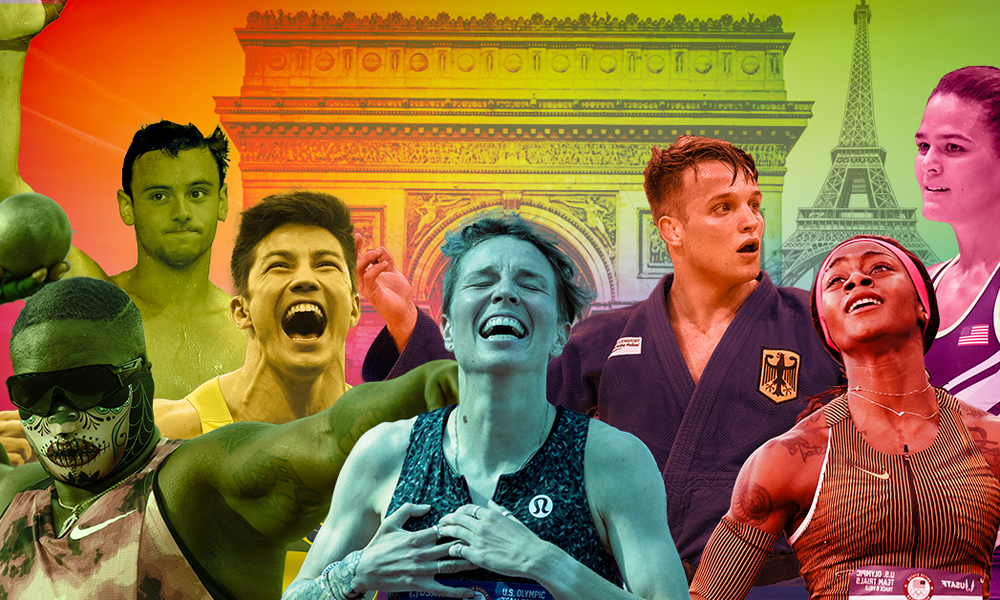

Patrick / 10 June 2024
He’s in an uproar about homophobic language in hockey but uses the slur queer openly after the majority of us have said no we dont want this word. 1500 species of animals are same sex attracted and they are not queer. I bet you will even censor everything i wrote. Not a great time to be gay thanks to homophobic lgbtq+ “community”.